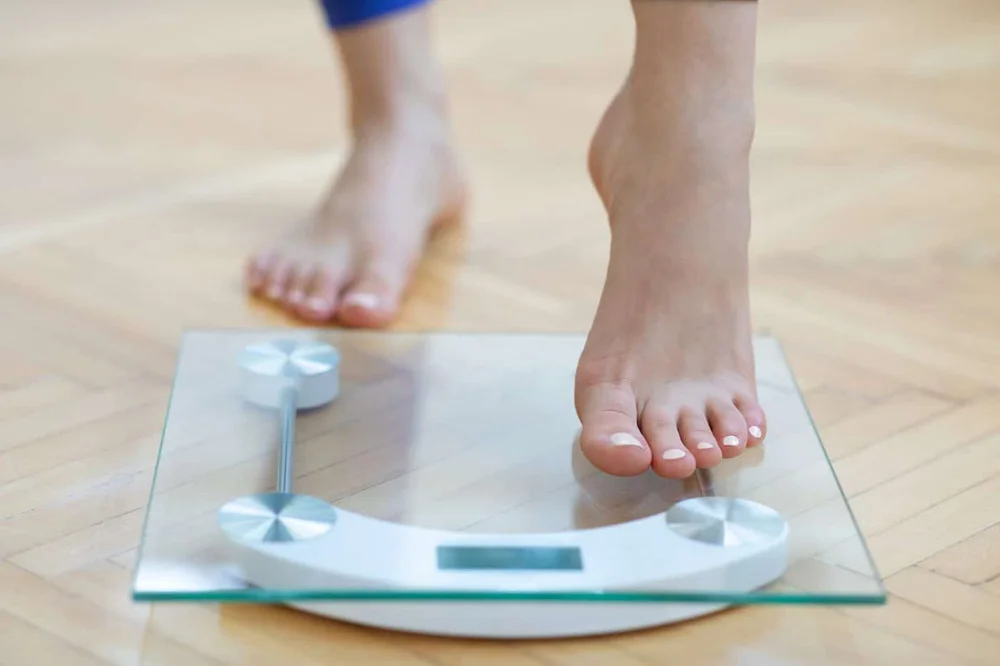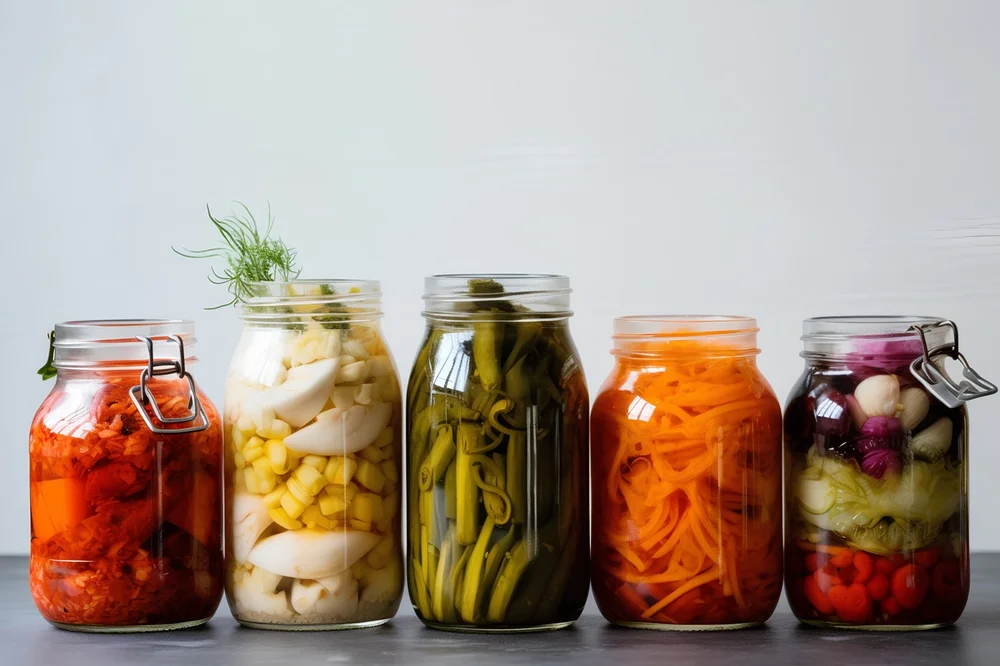This Is Why Skipping Meals Isn’t Good for Your Health
Medically Reviewed by Dr. Nicole Avena
In today’s busy world there are many reasons people skip meals.
Why People Skip Meals
According to research published in the Journal of Food Science and Nutrition Research, breakfast is the most frequently skipped meal of the day.
The #1 reason people skip meals (breakfast in particular), is lack of time. Other reasons include:
- Lack of appetite
- Trying to lose weight
- Not able to cook
- Intermittent fasting
Regardless of the reason (unless you’re fasting for medical or religious purposes), it’s recommended that you eat regular meals, even if they’re smaller ones, throughout the day. Consistently passing up on meals can lead to a host of mental and physical problems.
Dangers of Skipping Meals
Nutrient Deficiencies
It goes without saying that skipping meals can lead to nutrient deficiencies. Still, due to the potential negative ramifications of frequently postponing meals, it’s worth repeating. Skipping a meal means passing up on an opportunity to nourish your body with the vitamins, minerals, amino acids, and other nutrients it needs to stay strong and healthy.
When you finally get to your next meal, your low blood sugar level may tempt you to gorge on processed foods with simple carbs, which will only fill you up for the moment. Trouble is, carbs and other sugar- or fat-filled foods often contain little nutrition and can lead to weight gain and potential problems with your organs or other bodily systems.
Energy/Mood Swings
Skipping meals may also create blood sugar swings that can affect your energy levels and mood (ever been hangry?). Without a fresh intake of nutrients, you may end up feeling lethargic and mopey. Of course, this can affect your judgement and cause you to reach for unhealthy foods that won’t supply your body with key nutrients or satisfy your hunger.
Temporarily abstaining from food and doing a workout might be a double whammy to your system since your body will struggle to pull from its nutrient stores to keep up with the increased energy demands. To prevent muscle strain and joint pain, there are several pre- and post-workout foods you should consider consuming.
Drives Cravings
Like the proverbial elephant in the room, if you’re hungry, the only thing you’re thinking about is eating. And, most likely, you’re thinking about foods that can give you a quick boost in energy, like high sugar/simple carb snacks.
If your goal with skipping meals is to lose weight, it may backfire and lead to binge eating. Even if you’ve never had strong cravings for carbs and sugar before, skipping meals may create a dependency on foods with these unhealthy ingredients.
Irregular Digestion
Inconsistent eating patterns may cause digestive issues such as constipation, diarrhea, and even nausea. Falling into a pattern of skipping a meal and then eating a big meal can create additional distress in your digestive system. Eating regular meals filled with fiber-rich and plant-based foods is a solid way to help reestablish healthy digestive habits.
Eating Disorder
It stands to reason that irregular eating habits can lead to an eating disorder. Like the swinging of a pendulum, skipping meals followed by voracious eating can lead to rapid weight gain on one side and severe weight loss on the other. A brain receiving insufficient nutrients may drive these extreme diets, which can lead to severe eating challenges.
One of the best ways to avoid the negative effects of skipping meals is to always carry healthy snacks that can help tide you over until the next meal.
Here Are Some of the Best Healthy, Anytime Snacks

- Assists you in achieving weight loss goals
- Keeps your blood sugar stable
- Curbs the urge to overeat
- Revs up your metabolism
- Provides the fuel you need to feel alert and focused throughout the day
Eating sensible snacks also can help fight mid-morning fatigue, mid-afternoon carb cravings, and mindless evening grazing – one of the chief culprits in weight gain.
What to Look for In a Healthy Snack
To ensure you’re eating a healthy snack, make sure it includes:
Protein: 7 to 10 grams of protein (equal to about 2 tablespoons of hummus or guacamole, or a slice of turkey, or 2 tablespoons of whole, raw nuts)
Healthy fats: 3 to 15 grams of healthy fats, such as avocado, salmon, or seeds
Complex carbohydrates: 2 or 3 cups of raw or lightly steamed veggies – or a serving of low-sugar fruit such as berries or tart apples
7 Healthy Snacks to Keep Handy Throughout the Day
1. Excellent Eggs
One of the few foods considered as a complete protein, eggs contain all nine essential amino acids that the body can’t create on its own. Additionally, eggs are full of vitamins needed for the body to produce energy, such as thiamin, riboflavin, folate, and B12. That gold yolk color also provides carotenoids, which help the eyes function and may help with mental processing.
2. Dip Apple Slices
As a healthy alternative to eating chips and dip, slice up an apple and dip the wedges into almond butter for an appetizing snack. For variety, use any organic, sugar-free nut butter as a great-tasting, protein-packed dip.
3. Snack Bags
Emergency rations can be a lifesaver if your blood sugar drops and you get a snack attack. Examples of healthy snacks are low-sugar dried fruits (raisins, cranberries, and cherries), vegetables (baby carrots, celery, and snap peas), and nuts (almonds and walnuts).
4. Eat Edamame
Replace finger foods like Skittles or M&Ms with shelled edamame (which is roughly the same size as those candies). Edamame is high in protein and fiber and is the perfect low-calorie snack for when you get the munchies.
5. Nutritious Nuts
Almonds and cashews are an excellent source of protein, healthy fats, and fiber that can help balance blood sugar levels. They’re also packed with magnesium, a mineral that plays a key role in converting food into energy. Walnuts have more plant omega-3 fats than other commonly consumed nuts such as almonds, peanuts, and pistachios.
6. Turkey and Grapes
For an energy-enhancing snack, eat two slices of lean deli turkey and a dozen grapes. This well-balanced snack is high in protein and antioxidants and should keep you sated until your next meal.
7. Healthy Chocolate
Chocolate has health-promoting properties that support a positive mood and the ability to think clearly and focus. Unfortunately, most chocolate bars are loaded with harmful ingredients like sugar, dairy, and synthetic flavors that virtually cancel out chocolate’s powerful health benefits. Instead of chewing on a sugary candy bar, reach for a nutritious chocolate bar instead – one that will sustain your energy rather than making it crash after a brief spike.
BrainMD offers two delicious chocolate bars that are sugar, dairy, and gluten free: Brain in Love and Brain on Joy. Stock up so that you’ll never be tempted to eat an unhealthy chocolate bar.
Consistent Nutrition
Though there might be a good reason for skipping meals, like a medical or religious fast, try not to make this a consistent pattern. There are a host of mental and physical complications that can result from failing to get regular nutrition.
Planning delicious and healthy snacks is a great way to curb cravings for unhealthy foods and to avoid overeating at mealtime. Also, they can help you stay full between meals and help you achieve and maintain a healthy weight.
The goal should be consistent, healthy nutrition. Never pass up an opportunity to give your body the nutrients it needs to function at its best.
Skipping meals is a losing game, so don’t play it.
At BrainMD, we’re dedicated to providing the highest purity nutrients to improve your physical health and overall well-being. For more information about our full list of brain healthy supplements, please visit us at BrainMD.
- This Is What You Need to Know About HBOT
Medically Reviewed by Dr. Nicole Avena - April 22, 2024 - Hormone Changes in Men: How to Know If You Have Low Testosterone! - April 15, 2024
- This Is What You Need to Know About EMDR Therapy! - April 11, 2024




I have really enjoyed reading your regular articles which are really informative. Until this one. Your reasoning here for not skipping meals is that you’re “probably” going to end up reaching for bad food to quell a craving due to inconsistent eating patterns. If you intentionally skip breakfast, for example, everyday in place of an eating window of 8 hours during the later part of the day, this is a consistent eating pattern and does not automatically result in unhealthy eating at all. I am a natural intermittent faster and will not eat unless I am hungry, which is later on during the day. When I first got into a relationship with a man who ate constantly – the forced breakfast and lunches (of healthy food) made me incredibly sick with fatigue, constipation and weight gain. From my perspective this eating pattern is an eating disorder. He continually thinks about food. By the time he finishes one meal he’s thinking about the next within an hour or two. He has gut issues which he doesn’t realise are even issues. They’re just an accepted part of his life. If he didn’t also constantly exercise (4 hour bike ride and an hour in the gym everyday) he would no doubt be sick and overweight. You need fuel for when your body is driving. Without exertion, you do not need a constant full tank of gas (ironically this is exactly what you end up with in the context of the gut). Three meals a day may work for athletes, but for normal people this only seems to be gluttonous and harmful. The evidence around IF is clear.
Fasting is healthy for you and should be done weekly. Either 16 or 18 hr fast will detox your gut, eliminate excess sugar and the HGH growth hormones kick in to help repair damaged cells